One Merrill couple shares how the program helped them at a critical juncture in their lives
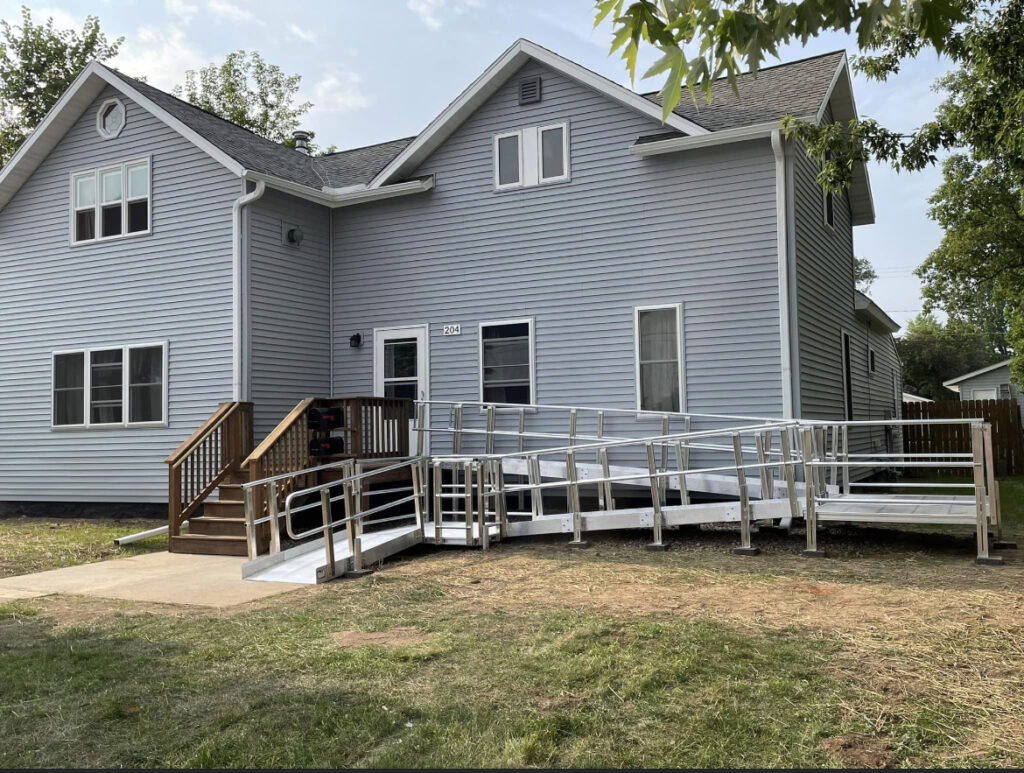
BY TINA L. SCOTT
EDITOR
The City of Merrill offers low- and moderate-income (LMI) residents assistance with rehabilitating and improving their owner-occupied homes that are located within the city limits, through their Community Development Block Grant (CDBG) Program. Over the years, that program has changed a bit, so it’s worth revisiting how the program works currently. Eligibility for the program is based on income and family size; the current income limit for a single-person household is $48,350, for example.
“CDBG loans are specifically used to improve the home with siding, roof, windows, insulation, doors, drywall repairs, furnace, water heater, and plumbing,” said Shari Wicke, Community Development Director/Building & Zoning Assistant for the City of Merrill. Other eligible repairs include interior repairs, updating wiring, repairing a chimney, foundation, porch, or painting the exterior of the home. It can also assist with modifications to make a home handicap accessible. Whenever possible, the City coordinates efforts with other established agencies and organizations such as the Community Action Program and Wisconsin Public Service to help the homeowner with their needs.
“This program is a win/win situation for the homeowner and the City,” Wicke said. “The homeowner gets a 0% deferred loan to make improvements to their home, and the City benefits by cleaning up the neighborhoods and a possible increase in tax base.”
“Homeowner applicants must have adequate equity in their property to secure the City’s CDBG loan,” she said.
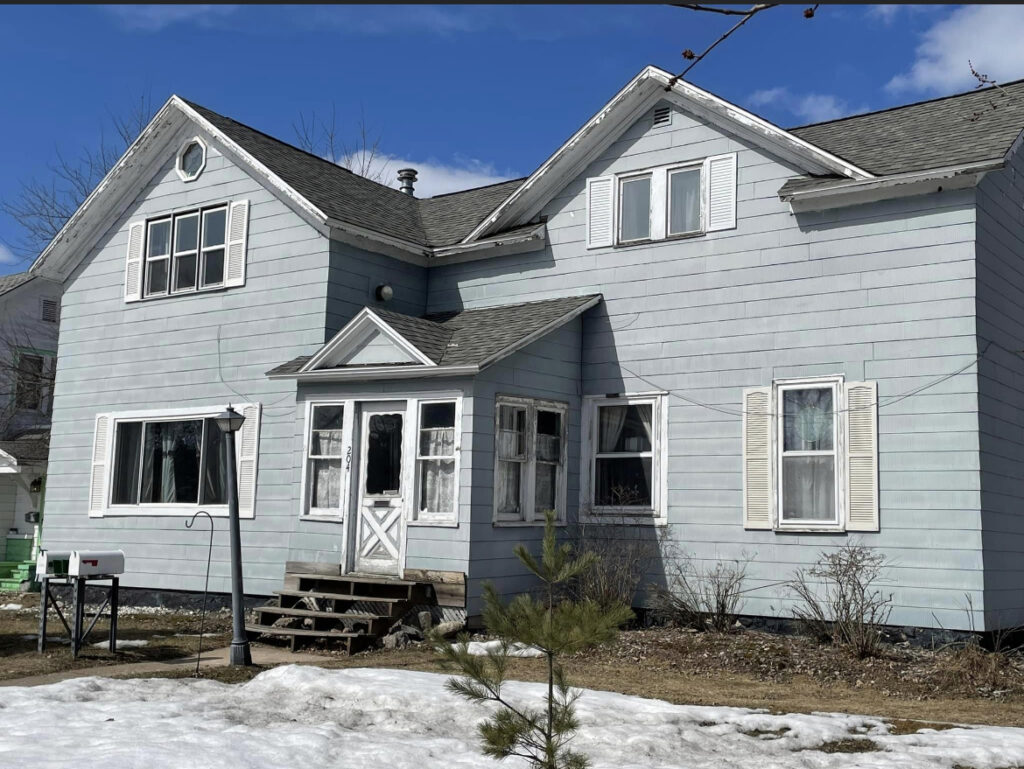
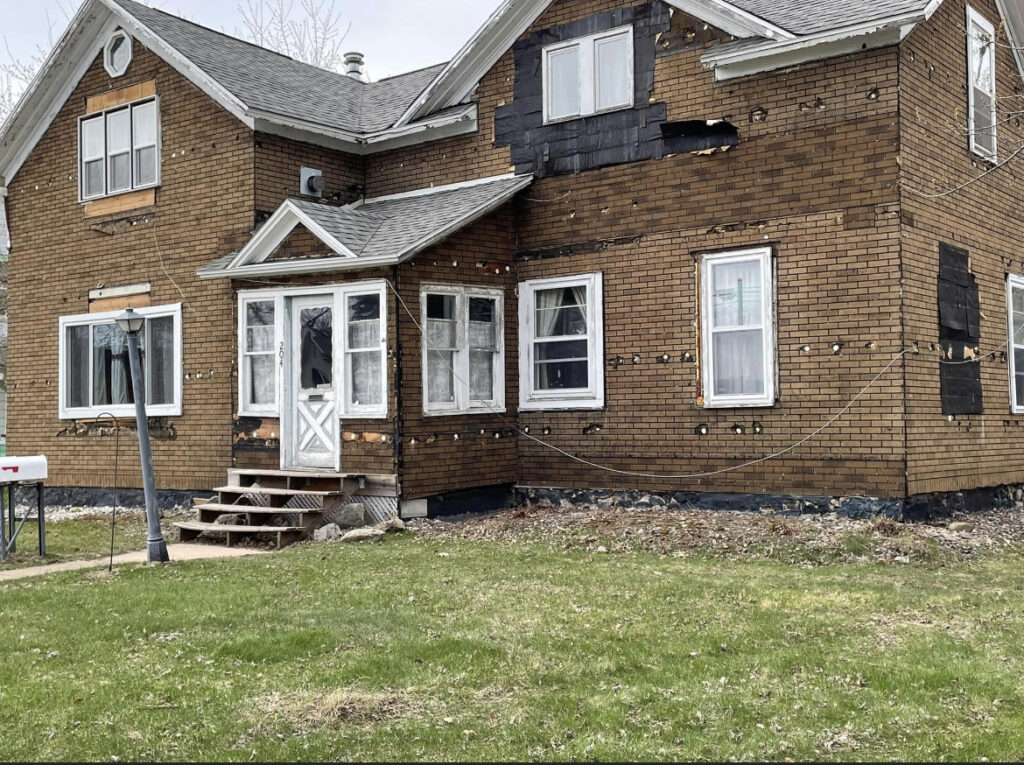
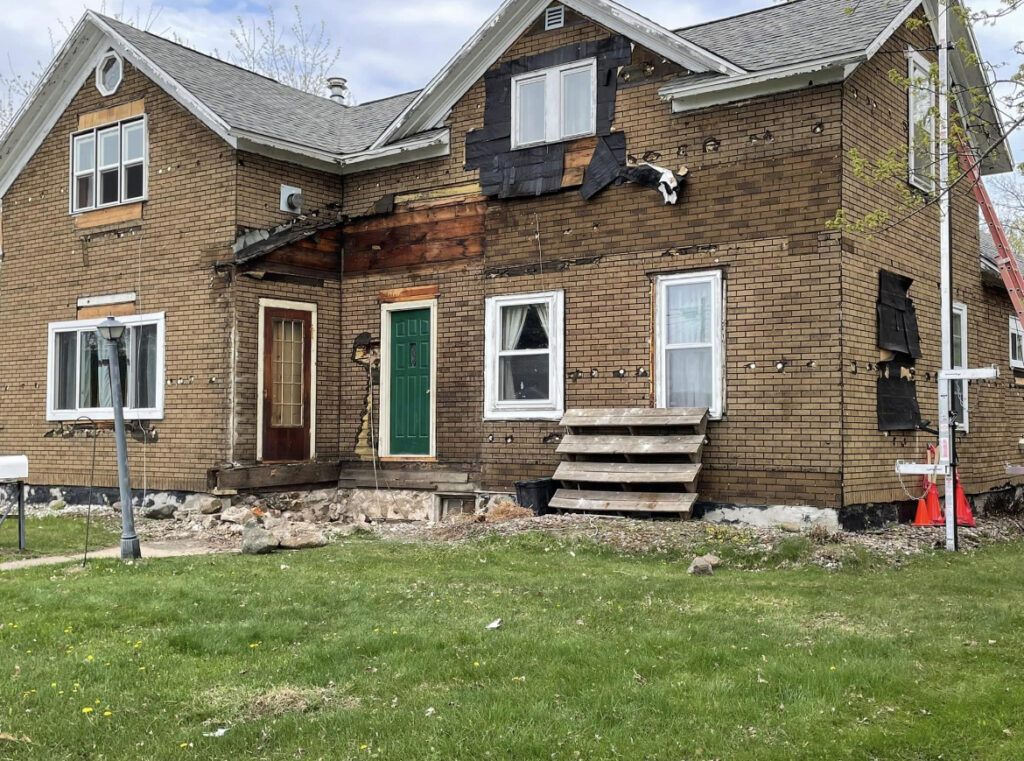
The answer they needed
Jacki and Mike Albert purchased their home at 204 E. Third St. in Merrill in August 1999 and had been paying on the mortgage for years. At one point they redid their roof and refinanced the mortgage for 15 years with a fixed rate. As they got close to having that paid off, they had planned to make more much-needed improvements to the home.
Then one evening in May nearly three years ago, Jacki tripped over their family dog in their kitchen while doing the dishes, and just like that, their lives changed. “I was doing dishes and she [the dog] was laying behind my feet, and I didn’t know she was there, and I grabbed the tan towel,” Jacki said. “And when I turned around, I couldn’t see her – I had a towel in my hand. …” It all happened so quickly when she fell that it was kind of a blur. “I remember her on my left foot and [then] picking myself up off the kitchen floor,” she said.
At first Jacki didn’t realize the severity of her injury. She finished the dishes and went to bed. But in the days that followed, it became apparent something was very wrong. For the first few weeks, Jacki thought she was having severe mirgraines. But eventually, after a cat scan, doctors discovered she had a subdural hematoma (bleeding on the brain) which was a slow bleed, and Jacki underwent brain surgery and was hospitalized nearly three weeks. The injury left her with long-term damage and Jacki could no longer hold a job.
So they had equity in the home, but now they had huge medical expenses to pay and they didn’t have the income to get a traditional loan on their home to do the necessary repairs.
“Every time we would get enough money to where we were ready to do it, something would happen,” Mike said. “And then when she had her brain surgery and all that, it just wiped us out.”
“We’d have lost this house if it wasn’t for that block grant,” he said. So many things needed to be done to maintain the house properly, and they were even getting to the point where they considered selling it, but they didn’t have a more affordable housing alternative in mind either.
Instead, the Alberts were able to work with Chris Stoerzer and CTD Construction, RTL Electric, and other approved contractors on the CDBG Program list to make improvements and stay in their home.
Mike explained all the work that was done: A special company had to come in to remove their existing siding because it contained asbestos. Then, they discovered another layer of siding beneath that and CTD went to work removing that siding; followed by installing new siding, soffit and fascia, and gutters; ripping off an old enclosed porch and putting a new porch on; replacing almost every single window and trimming them out inside the house; removing a large, old unused deck in the back and putting a porch on back there; replacing doors; and building a handicap ramp. They also brought in other contractors to do some necessary replumbing and electrical work in conjunction with the project.
“They did a great job,” Jacki said of CTD. “They were a lot of fun.” The couple explained they had had problems in the past with some contractors never even calling them back or showing up for estimates, but Stoerzer and CTD and the companies they worked with were very responsive and good to work with.
The total process took about a year – between applying, getting approved, getting the contractor, getting the windows and siding and other materials, and getting all the work completed, they explained. Everything was finished last July.
“Don’t look at it as a challenge, because Shari works with you,” Jacki said. “And if you have any questions, she’s right there to answer them.”
“And she would stop in and check in while they were working and make sure everything was going smoothly, if there were any issues, etc. … It’s a good program. She knows her stuff.”
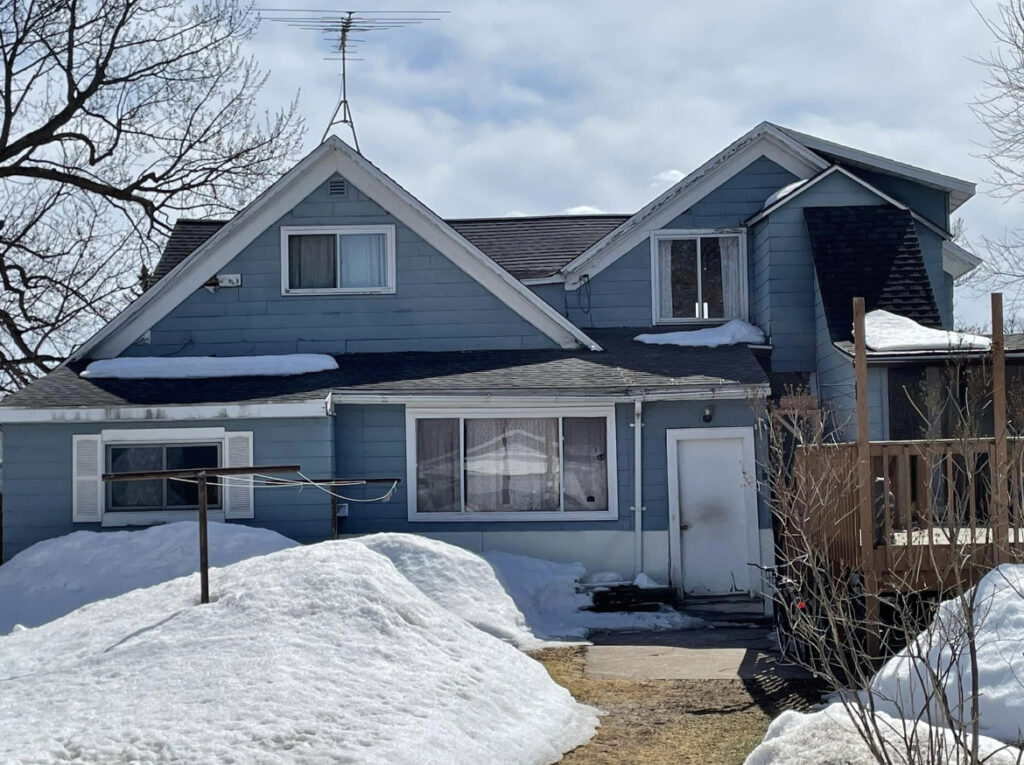
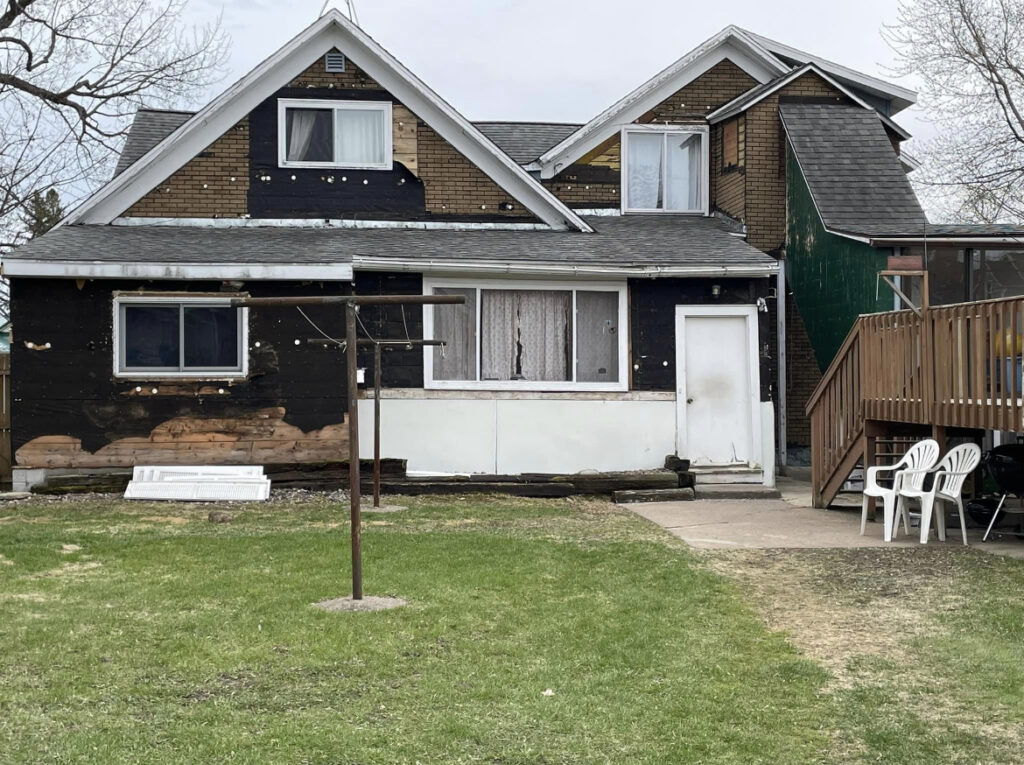
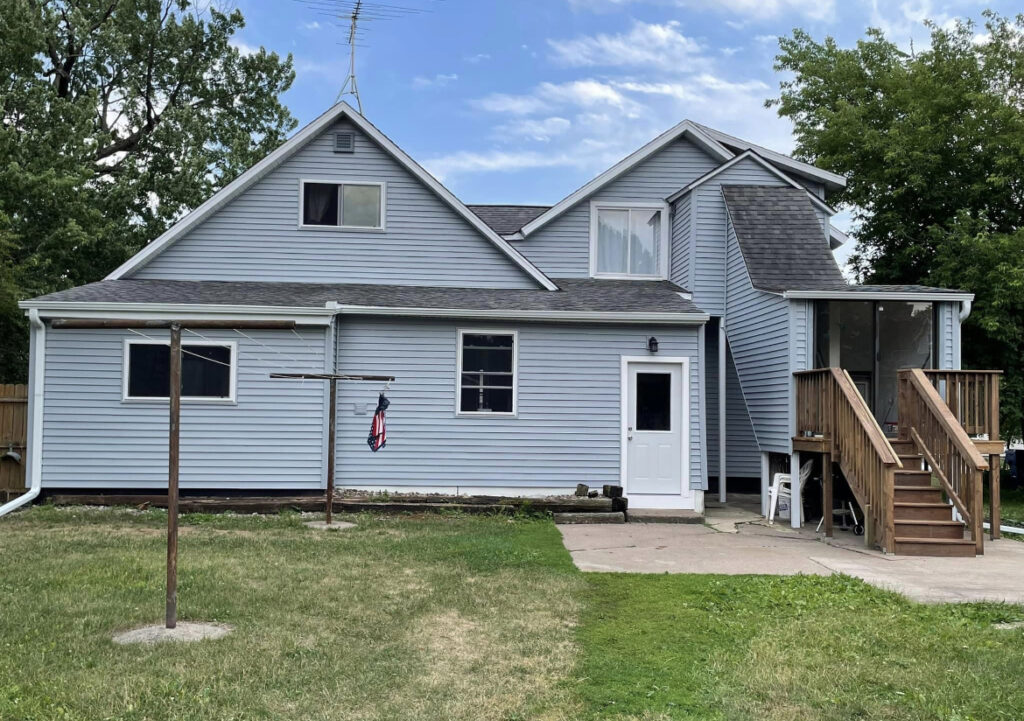
How it works
The Alberts gave permission to share their financial details. The Alberts explained they were approved for a certain amount based on the value of their home and the equity available. Their total project ended up costing $103,865.36. Of that amount, $27,260.00 is a grant the Alberts don’t have to repay; the Alberts only being responsible for $76,605.36, Wicke said. The loan sits out there interest-free with no payments due on a regular basis, as would be the case with a mortgage or home equity loan, and only becomes due when one (the first) of the following occurs:
- In 30 years, or
- When they no longer live in the home as their full-time residence, or
- They transfer their interest in the property to anyone for any reason except that one transfer to a spouse is allowed and a transfer is allowed to an heir that also qualifies for the CDBG Program within its current income limits AND also resides there as his or her principal residence, or
- They fail to maintain insurance on the property to protect the City’s interest in the event of fire or other loss (and if in a floodplain, flood insurance), or
- They fail to pay property taxes or other assessments levied on the property.
In any of those situations, the loan becomes due and payable in full upon demand. In essence, the program is set up so that the home’s essential maintenance is completed, the family doesn’t have to stress about repayments on the loan, and in years to come, when the home is sold, the loan will be paid out of the proceeds of the sale.
For more information about the CDBG Housing Program, go to: ci.merrill.wi.us/homeowners or contact Wicke at Merrill City Hall. Call 715.536.4880 or email her at: [email protected].
Other CDBG Programs are also available for landlords whose tenants are LMI under the guidelines and to new LMI home buyers as matching funds to assist with a down payment and closing costs. For more information about those programs, go to: ci.merrill.wi.us/community-development
Before and After:


